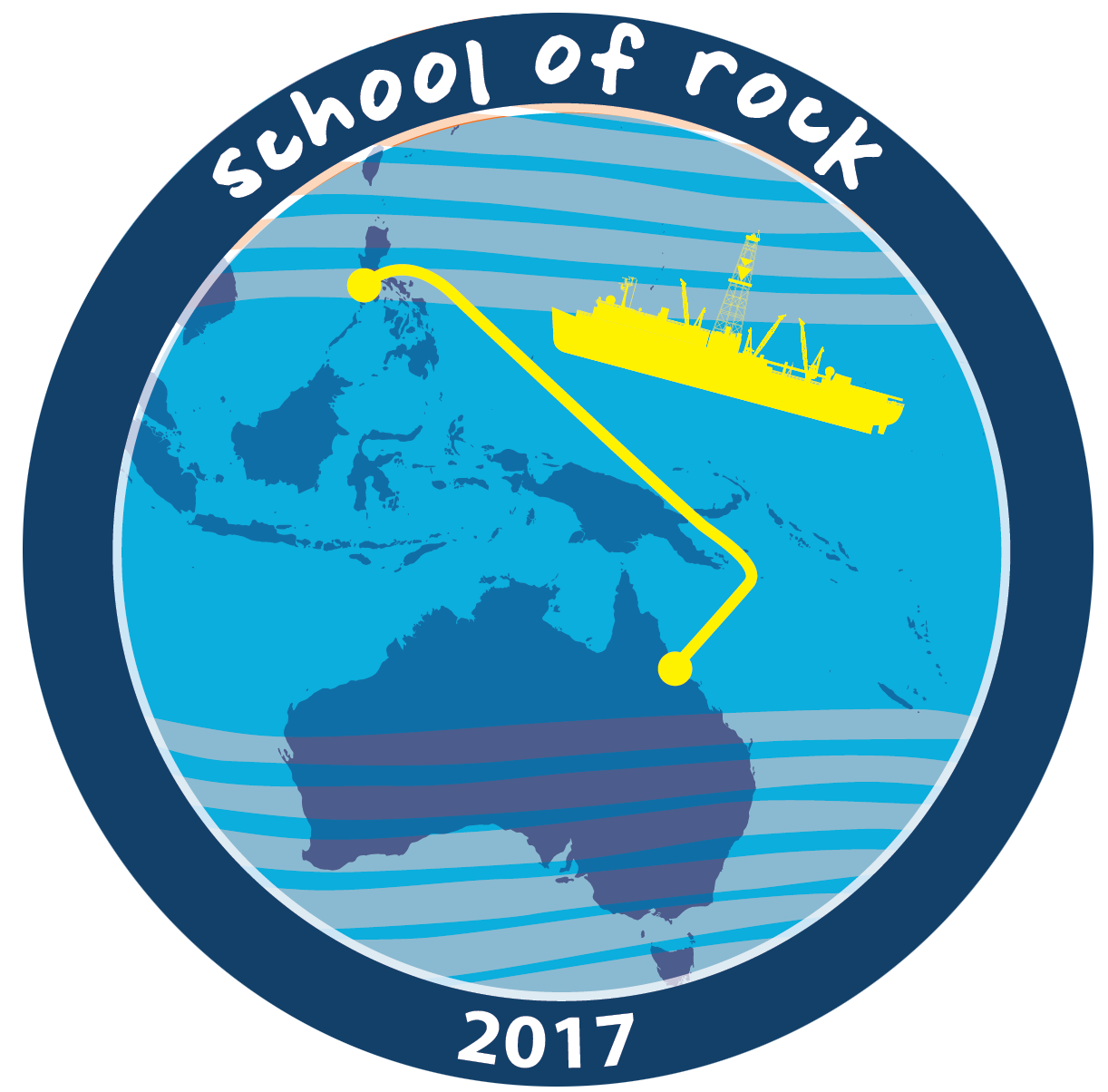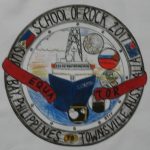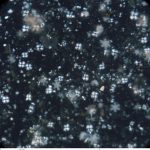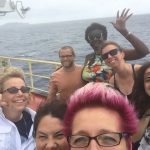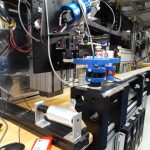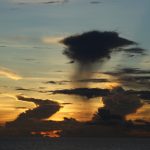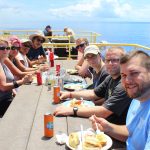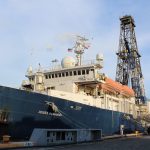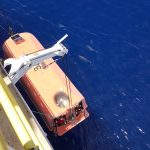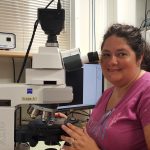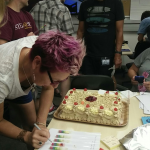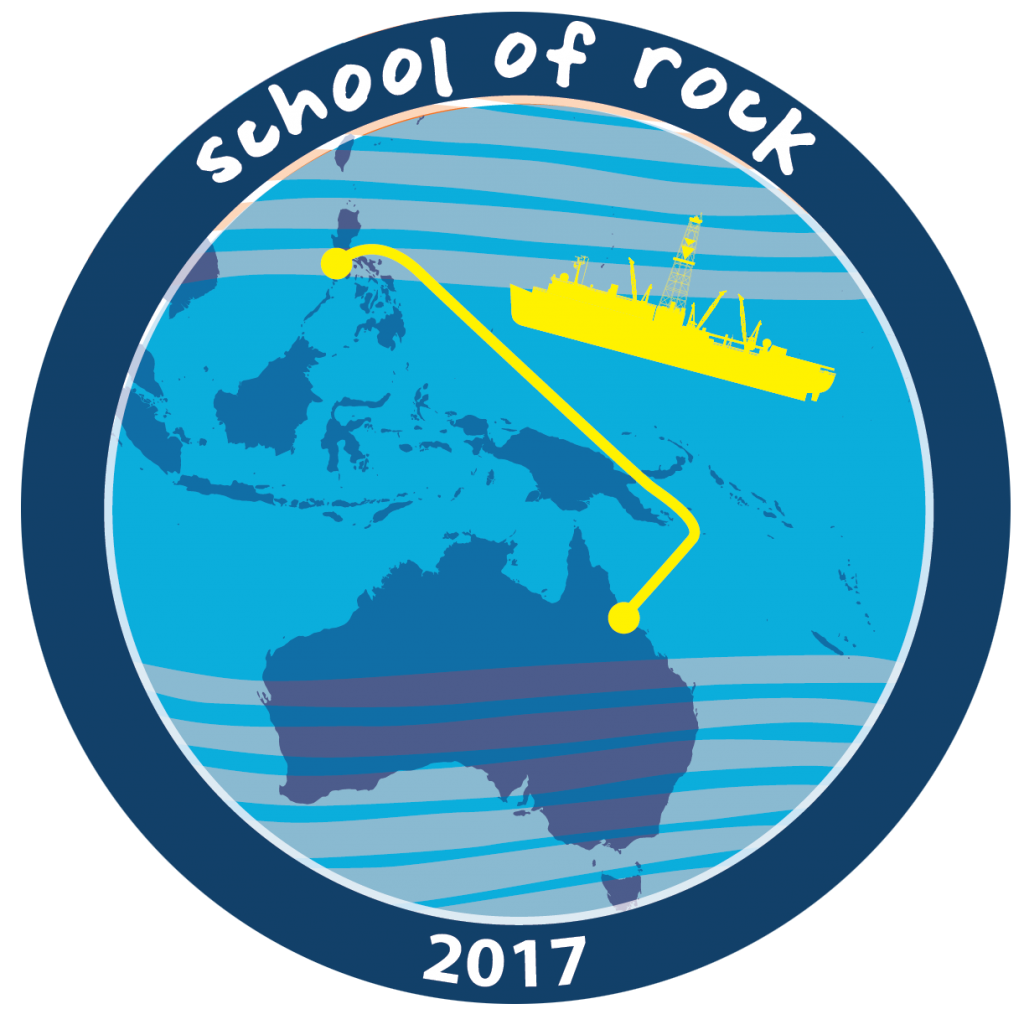
School of Rock 2017
SOR 2017 was a special hybrid workshop entitled, “Expanding The Geoscience Pipeline By Connecting Educators With Early Career IODP Scientists.” It’s overarching goals are:
- encouraging early career scientists and secondary-level educators from communities that remain poorly represented in STEM fields, and particularly geosciences, to participate.
- showcasing and educating about JR/IODP capabilities.
- increasing the diversity of the talent pool that will apply to sail on IODP and related expeditions in the future.
- building a diverse mentoring pool for undergraduate STEM/geoscience students.
- creating local partnerships to bolster the STEM/geoscience pipeline.
SOR 2017 is jointly funded by the U.S. Science Support Program and a supplemental grant to Indiana University of Pennsylvania from NSF’s Integrative and Collaborative Education and Research (ICER) division (Award #1734023).
Initial Science Report from this School of Rock is available here: SOR 2017 initial report.
A presentation about the initial results of SOR 2017 given at the 2017 Fall GSA conference is here.
Another presentation with further results was given at AGU 2017 here.
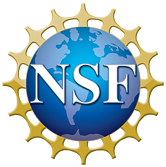
![]()
Instructors
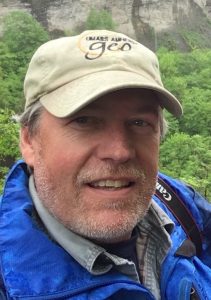
Mark Leckie is a Professor of Geology at the University of Massachusetts-Amherst. He co-led the initial IODP ‘School of Rock’ expedition in 2005 and co-taught a number of subsequent shore-based short-courses and workshops. Mark is a marine micropaleontologist, specializing in paleoceanography and ocean-climate history of the past 120 million years. He has participated in six DSDP/ODP scientific expeditions, and served as Co-Chief Scientist of ODP Leg 165. In January 2018 Mark will sail on IODP Exp 374 to the Ross Sea, Antarctica, where he began his research career. Mark is a co-author of an introductory oceanography text/activity book: Investigating the Oceans: Illustrated Concepts and Classroom Inquiry, and an advanced book based heavily on scientific ocean drilling results: Reconstructing Earth’s Climate History: Inquiry Based Exercises for Lab and Class. He has been an instructor at the Urbino (Italy) Summer School on Paleoclimatology. His teaching responsibilities include Introductory Oceanography, History of the Earth, Introductory Field Methods, Paleoceanography, and Marine Micropaleontology.
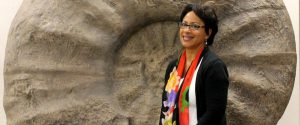
Lisa White—University of California Museum of Paleontology
Lisa White is the Director of Education and Outreach at the University of California Museum of Paleontology (UCMP) and Adjunct Professor of Geology at San Francisco State University. Past positions held at San Francisco State include Professor of Geology (instructing undergraduates in historical geology, paleontology, history of life, and oceanography), Chair of Geosciences, and Associate Dean of the College of Science and Engineering. Lisa has extensive experience directing science outreach programs for urban youth and she is active in efforts to increase diversity in the geosciences. A micropaleontologist by training specializing in fossil diatoms and the stratigraphy of the Monterey Formation and related siliceous units around the Pacific Rim, she is a Fellow of the California Academy of Sciences and the Geological Society of America and a veteran of two IODP cruises. Lisa was the inaugural recipient of the GSA Bromery Award for Minorities, an honor bestowed upon a geoscientist who has been instrumental in opening the geoscience field to other minorities. As the director of the SF-ROCKS (Reaching Out to Communities and Kids with Science in San Francisco) program, Lisa trains and guides diverse groups of students in wide-ranging geoscience learning experiences. As the education director at the UCMP, Lisa develops and disseminates learning materials on evolution and the Earth’s biota, global climate change, and the nature and process of science. Lisa earned degrees from San Francisco State University (B.A. in Geology) and the University of California at Santa Cruz (Ph.D. in Earth Sciences).
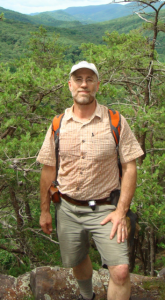
Jon Lewis – Indiana University of Pennsylvania
“Hearing is letting it happen, to listen’s a work of will, beware of cheap imitations.” So sings Chris Smither. The sincere connections that we make within the geoscience community are two-way relationships based on listening. Although these words postdate my entry into the field of geology, looking back as far as I can, I realize how true they are. Once I saw what geoscience offered I transferred as a sophomore to the University of Vermont and majored in geology. From there I went directly to the University of Tennessee to work an M.S., which I earned in 1988 while working in environmental consulting. After a few more years of environmental work, from FL to TX and from VA to CO, I moved on to UConn to work on a Ph.D, finishing in 1998. My Ph.D. work focused on the structural history of the SW Japan accretionary margin.
Fast forward through postdocdom in CA and MA to 2004 when I joined the faculty of the Geoscience Department at Indiana University of Pennsylvania (IUP). Soon after starting at IUP, the Nankai Trough Seismogenic Zone Experiment (NanTroSEIZE) project commenced. I was honored to sail on the Chikyu as a Structural Geologist on IODP Expedition 315 in 2007. This was a logical extension of on-land structural history research in SW Japan. In addition to SW Japan, I am working to understand the configuration of active faults in Costa Rica and to constrain the crustal architecture of the Taiwan arc-continent collision. I continue to be active in the offshore geoscience community having recently completed a 3-year stint on the U.S. Advisory Committee for IODP, serving as an instructor for 3 previous offerings of School of Rock, and serving as co-investigator on the STEM Student Experiences Aboard Ships (STEMSEAS) project with Sharon Cooper.
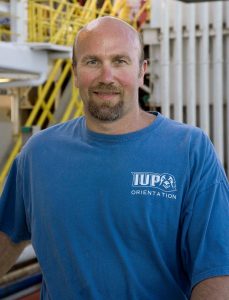
Steve Hovan is Chairperson of the Geoscience Department at Indiana University of Pennsylvania. His research interests surround the paleoclimatic record of terrigenous inputs to the deep sea, particularly those involving eolian dust transport to map zonal winds patterns and understand how changing wind patterns are related to Earth’s climate system. In all aspects of his research, providing undergraduate students with the opportunity to become involved in genuine research activities is a primary goal. Over the years he has sailed on more than 17 oceanographic research cruises to the Pacific and Atlantic Oceans providing expertise with coring and sediment description/interpretation and serving as the faculty research mentor to undergraduate students.
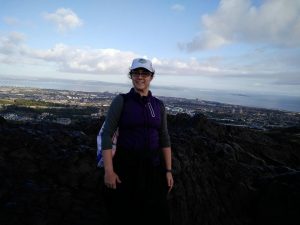
Sharon Katz Cooper is the Manager of Education and Outreach for the U.S. portion of the International Ocean Discovery Program. She first learned about IODP when working for the Smithsonian on developing the Sant Ocean Hall, during which she sailed on the very first School of Rock in 2005 and became permanently hooked. Now a full-fledged accidental geologist, she creates and implements programs around the world to encourage students, teachers and the general public to fall in love with STEM and get their minds blown by the amazing science IODP and related programs do every day. In other parts of her life, she is a children’s book author, wife, mom, cook and laundry-folder. She is married and has three boys who refer to the JR as “mommy’s ship.”
Participants
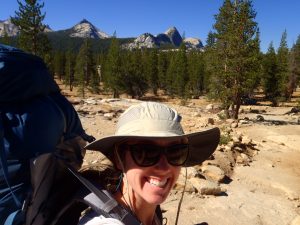
Julia Domenech began her educational training by first earning a Bachelor’s of Science in Psychology and then her Geoscience teaching credential. She continued her academic endeavors during graduate school where she earned a Master’s in the Geosciences. Currently, she teaches Earth and Space Science at Buena High School while working towards her doctorate in the Earth and Atmospheric Sciences with Mississippi State University. As a credentialed Geoscience educator, her overall aim is to help students understand how to interpret the laws and theories of their natural environment and apply that awareness to their everyday life.
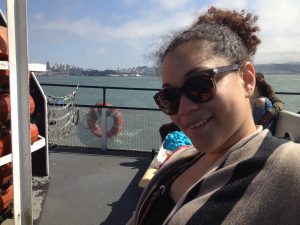
Rachel Bernard is a PhD student at the University of Texas at Austin. She is conducting research on the rheological (physical) properties of the mantle by studying peridotite xenoliths — rocks that are carried up from great depths through volcanic eruptions. Before discovering her love of rocks and minerals, Rachel earned a B.S.E. in Civil and Environmental Engineering from Princeton University in 2009, and worked as a field engineer on offshore oil and gas rigs in the Gulf of Mexico. Before starting graduate school, Rachel worked as a Science Assistant for the NSF Division of Earth Sciences. Her work at NSF sparked a passion for education and outreach, particularly with regard to increasing diversity in the geosciences. Rachel is also a student in the UT Museum Studies Portfolio Program and in the future dreams of working at a natural history or science museum.
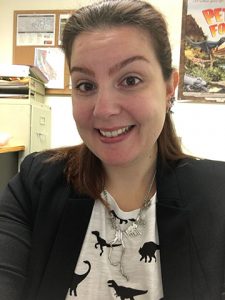
Chloe Branciforte – Assistant Professor of Geology
Ventura College – Ventura, CA
I received an MS in Paleontology from South Dakota School of Mines and Technology and a BS in Geology from SUNY Buffalo. I have been teaching geology at the college level for almost ten years. Currently, I teach courses at Ventura College including Physical and Historical Geology, Natural Disasters, and Geology of the National Parks. I am a passionate science literacy advocate and encourage students to understand the amazing world around them. I am very excited to be participating in the School of Rock and cannot wait to bring what I learn back to my classroom!
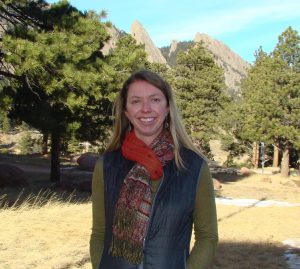
Diane Thompson is an Assistant Professor in Earth & Environment at Boston University. I teach courses at the undergraduate and graduate level on Climate & Earth System Science, Paleoclimatology, and Climate Variability/Climate Change. My research bridges the fields of ecology, paleoecology, and paleoclimatology to investigate climate change and its impact on coastal marine ecosystems. My work aims to improve our understanding of tropical climate, capitalizing on natural climate archives (including coral, and marine and lake sediments), historical observations, and climate models. My work also aims to assess patterns of future coral reef resilience (e.g., where will corals persist and why?). My research interests are ultimately motivated by the need to promote the resilience of coastal ecosystems and populations under future climate change and sea-level rise. I have led field expeditions across the tropical Pacific Ocean for this research (in the Galapagos, Marshall Islands, Kiribati and Australia), and am thrilled for the opportunity to join an IODP cruise and travel across the heart of the tropical west Pacific. The School of Rock opportunity will also allow me to foster an exciting partnership with Scituate area middle school teacher Dori Read to develop curriculum for our students. I’m looking forward to this rewarding research cruise!
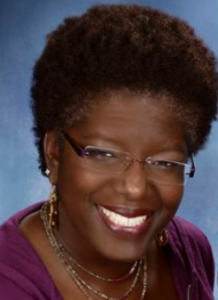
Kerrita K. Mayfield, PhD is a career educator with 25 years of experience teaching courses as varied as: biology, earth and environmental science, social justice education, and studio arts. A proud liberal arts graduate – Go Ephs! – Kerrita currently works at Holyoke High School where she teaches biology on the Freshman Academy’s Ethnic Studies Team and runs the Science Club – an after school maker space.
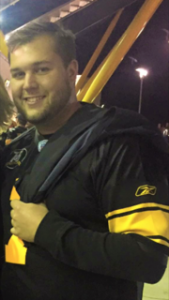
My name is David Hansen. I am originally from the Pittsburgh, Pennsylvania area but moved to Salisbury, Maryland last year to pursue a career in education. I graduated Summa Cum Laude from Youngstown State University in Youngstown, Ohio with a bachelor’s of science in education. I then attended The Pennsylvania State University for an additional year to deepen my understanding of meteorology concepts. I am currently an 8th grade science teacher at Salisbury Middle School. I enjoy boating, going to the beach/pool and fishing. I also have 6 years of high school basketball coaching experience. My passion for science coupled with my desire to enhance our youth’s understanding of the world around them sparks my enthusiasm for this once in a lifetime opportunity.
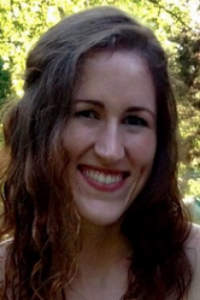
Colleen Henegan is an AP Environmental Science teacher at KIPP Austin Collegiate High School in Austin, Texas. She is also a yoga teacher and is teaching yoga classes while out at sea on the JR!
Name: Mi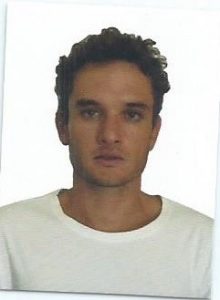 guel Evelim Penha Borges
guel Evelim Penha Borges
Age: 27 years
Citzien: Brazilian
Graduated in Geology (2012) and a Masters in Geodynamics and Geophysics (area of concentration in Environmental and Marine Geology) by the Federal University of Rio Grande do Norte (2014). Has been collaborating with Marine Science Research Group (CNPq) and the Marine Geology and Geophysics and Environmental Monitoring Research Group (UFRN) since 2009. Actually work as a professor of a technical course in Geology to secondary level students at the Federal Institute of Education, Science and Technology of Paraíba (IFPB). Has been working with Marine and Environmental Geology with emphasis on sedimentology and environmental monitoring of marine environments. Main interests in research are: environmental studies, seabed morphology, marine sedimentation and sea level variations.
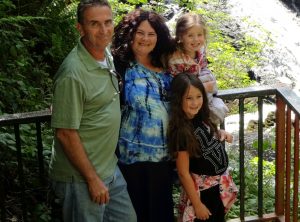
Stephanie Milam-Edwards
Steph is a science teacher at Tempe High School in Tempe, Arizona currently teaching Earth/Space science and Sustainability to juniors and seniors. Yep, she might be a little crazy. She holds a B.S. in Marine Science and a M.A. in Secondary Education and loves learning so much she decided not to leave school. She lives with her British husband and personal James Bond, Les and their two little girls, Bronwyn (age 10) and Bella (age 6), two “giraffe” Chihuahuas, Ben and Jerry, two cats, Lily and Mimi, a mouse named Mikey and a goldfish named Goldie. She is looking forward to sailing the high seas and doing some awesome science!

I’m Kim Hatch and I am an associate professor at Long Beach City College, CA in the Physical Science and Geography Dept. I am an earth science educator teaching; weather and climate, physical geography, environmental science, and oceanography. These are general education science classes that prepare students for transfer to 4-year universities. Before starting my teaching career I worked 22 years in private industry for a global geotechnical/environmental engineering firm. Those years exposed me to the applied skills and teamwork required to get major construction or remediation projects done for our clients.
I’m very interested in earth climate history and the forcing mechanisms that cause climate to change and the proxies that reveal these changes. By participating in the SOR program I hope to learn how to pass this knowledge on to my students in a skillful and interesting way. I’m always fearful of teaching in a silo and look forward to meeting other teachers on the JOIDES Resolution. I want to hear about what they have to say about their students’ educational and social experiences both downstream in K-12 and upstream at the university level. Ultimately I know my experiences in the SOR program will challenge the way I think about earth science and improve the way I teach my students.
![]()
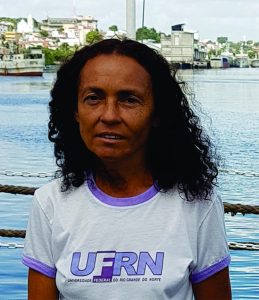
Helenice Vital
Suzy Urbaniak is the 2016 winner of the Prime Minister’s Prize for Excellence 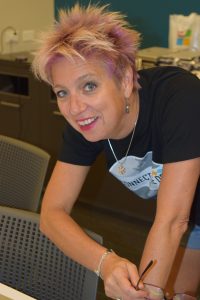 in Science Teaching in Secondary Schools. She holds a Bachelor of Science in Geology and a Dip Ed Secondary. Suzy loves rocks and climbs volcanoes in her spare time. She has always been passionate and curious about the Earth, its wonders and how it works. Suzy graduated with honors from ANU in 1988 and started work as a geologist in the Great Sandy Desert, WA at the Telfer Gold Mine. She found some “ounces” and thoroughly enjoyed the implementation of the scientific process to find new ore deposits. After a stint in Kalgoorlie, she then became a single mother to 3 boys and spent many years doing various short-term jobs to support her family. She lives in Australia.
in Science Teaching in Secondary Schools. She holds a Bachelor of Science in Geology and a Dip Ed Secondary. Suzy loves rocks and climbs volcanoes in her spare time. She has always been passionate and curious about the Earth, its wonders and how it works. Suzy graduated with honors from ANU in 1988 and started work as a geologist in the Great Sandy Desert, WA at the Telfer Gold Mine. She found some “ounces” and thoroughly enjoyed the implementation of the scientific process to find new ore deposits. After a stint in Kalgoorlie, she then became a single mother to 3 boys and spent many years doing various short-term jobs to support her family. She lives in Australia.
Tom Cawthern
I am currently an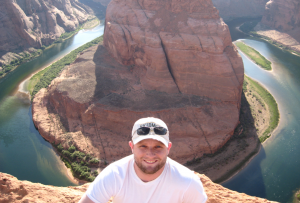 Assistant Professor of Geology at Salisbury University, located on the Eastern Shore of Maryland. I grew up in the small town of Boalsburg in central Pennsylvania, where my passion for geology began at an early age. There, I recall trudging through newly plowed farm fields searching for geodes and quartz crystals with my neighborhood friends and 5 siblings. My passion to understand where those rocks and minerals originated has continued to fuel a never-ending curiosity to understand how earth operates. My education at Penn State as an undergraduate, then at West Virginia University for my Master’s degree afforded me with a number of opportunities to hone my skills as a field geologist. My Master’s thesis at WVU provided me with the opportunity to study Mississippian-aged marine fossils preserved in strata from West Virginia and Virginia. As a doctoral student at the University of New Hampshire, I gained an altogether different skillset –the application of analytical geochemistry. My doctoral research at UNH provided me with the opportunity to research the geochemistry of a suite of volcanic ashes from the Andaman Sea, as well as look at the compositional variability of marine strata from the northern Bay of Bengal region. While I have worked with marine sediments as part of my doctoral research, I have not had the opportunity to actively participate aboard an ocean drilling expedition. I am looking forward to this year’s School or Rock to gain practical shipboard experience; collect marine sediment cores that we can use back in our local schools and college classrooms; and to collaborate with other educators in our field to discuss and construct innovative ways to deliver content to our students. In my spare time I like to spend time with my wife Misty and 2 kids outside at the beach or hiking around in the mountains, reading, and playing ice hockey.
Assistant Professor of Geology at Salisbury University, located on the Eastern Shore of Maryland. I grew up in the small town of Boalsburg in central Pennsylvania, where my passion for geology began at an early age. There, I recall trudging through newly plowed farm fields searching for geodes and quartz crystals with my neighborhood friends and 5 siblings. My passion to understand where those rocks and minerals originated has continued to fuel a never-ending curiosity to understand how earth operates. My education at Penn State as an undergraduate, then at West Virginia University for my Master’s degree afforded me with a number of opportunities to hone my skills as a field geologist. My Master’s thesis at WVU provided me with the opportunity to study Mississippian-aged marine fossils preserved in strata from West Virginia and Virginia. As a doctoral student at the University of New Hampshire, I gained an altogether different skillset –the application of analytical geochemistry. My doctoral research at UNH provided me with the opportunity to research the geochemistry of a suite of volcanic ashes from the Andaman Sea, as well as look at the compositional variability of marine strata from the northern Bay of Bengal region. While I have worked with marine sediments as part of my doctoral research, I have not had the opportunity to actively participate aboard an ocean drilling expedition. I am looking forward to this year’s School or Rock to gain practical shipboard experience; collect marine sediment cores that we can use back in our local schools and college classrooms; and to collaborate with other educators in our field to discuss and construct innovative ways to deliver content to our students. In my spare time I like to spend time with my wife Misty and 2 kids outside at the beach or hiking around in the mountains, reading, and playing ice hockey.
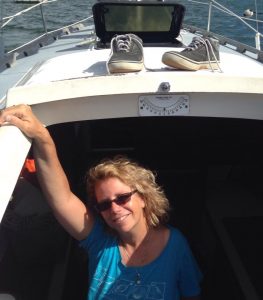
Dori Read is a middle school science teacher in Scituate, Massachusetts. Her 26 years of teaching experience have been with Grades 1-8, in a variety of settings. Originally from Rhode Island, she grew up with a love for all things related to the ocean, swimming and boating in Narragansett Bay, and summer jobs on Block Island. In the classroom, her work with organizations such as the North and South Rivers Watershed Association, Stellwagen Bank National Marine Sanctuary, and Holly Hill Farm has brought the importance of citizen science and hands-on, real world application of science to her students. When not teaching, Dori enjoys gardening and cooking, as well as shucking and eating oysters with her husband, and hanging out with her two sons. She plays several instruments, and is always open to a musical jam!
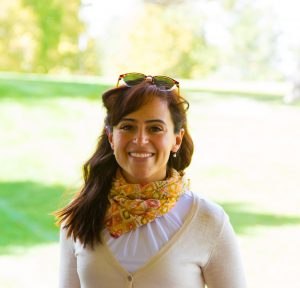
Marilyn Raming was born in West Covina, California but raised out east in New York. Her love of the outdoors took her to Utah, where she graduated with a B.A. in Secondary Education from the University of Utah. She worked throughout her undergrad as an informal environmental educator for various local non-profit companies such as Friends of Great Salt Lake, Swaner Preserve and EcoCenter, Red Butte Garden and Arboretum, and the Natural History Museum of Utah. Her love of the natural world and desire to acquire more knowledge within her field took her to Montana State’s Science Education program. Where she is currently completing her Masters of Science.
Marilyn and her family recently moved to Tempe, Arizona, where she is currently a science teacher at Mountain Pointe High School within the Tempe Union High School District. They moved to Arizona about a year ago on June 15th which was the hottest and worst time of the year to do so. Luckily, 9 out of the 12 months in Arizona are pleasant enough so they think they’ll stick around. They have a 9 year old cocker spaniel mix named Xander, after Alexander the Great of Greece (or the tyrant in their case). They have a 4 month old dwarf rabbit named Buckminster and 2 beta fish named Draco and Polaris.
Marilyn’s excited to gain valuable insight while on board the JOIDES, apply that material into her course, and pick up new hands on tools to implement in her classroom.
